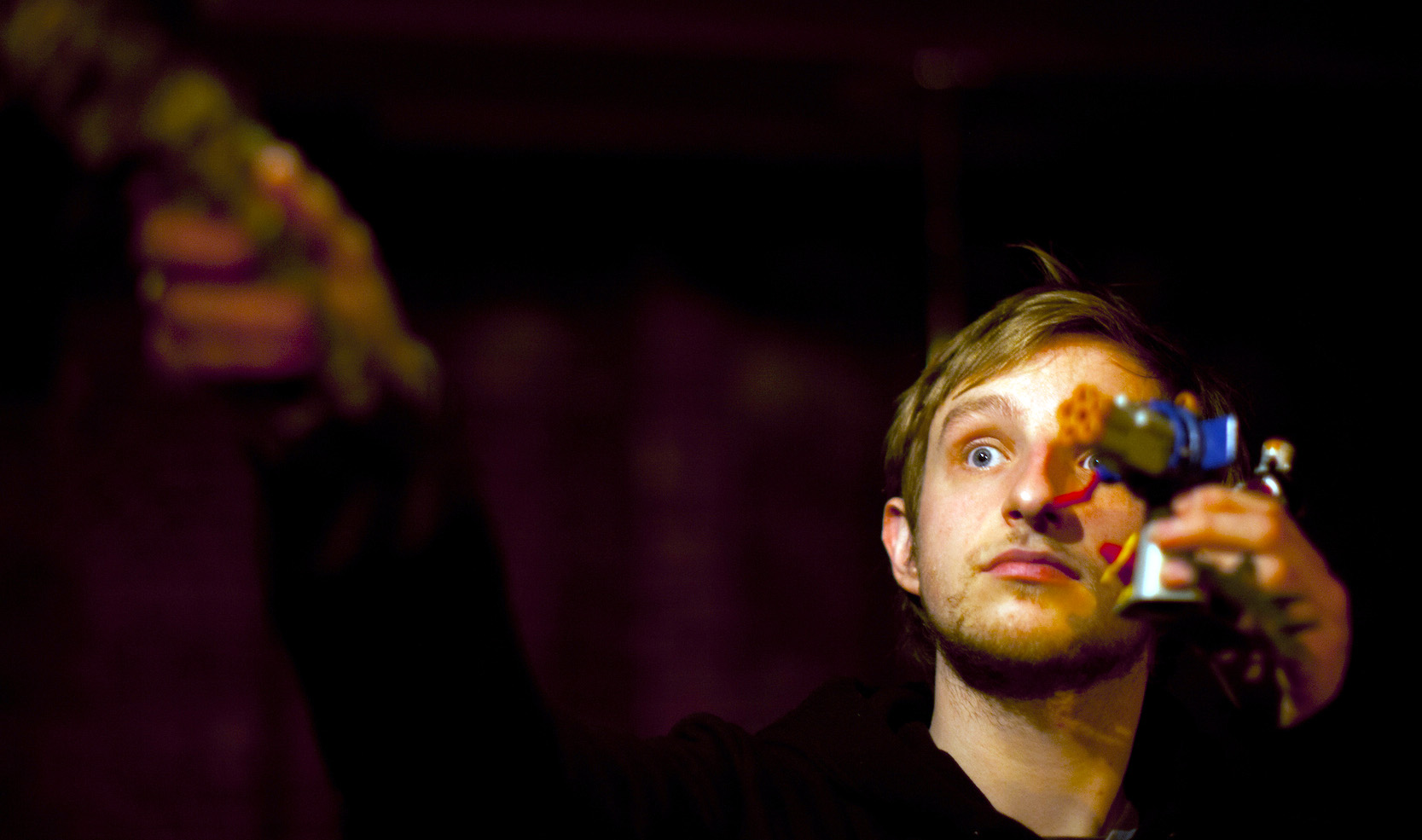Jack Dean’s monologue (or poem or play for one – take your pick) is, like Beckett’s Not I, a flow of consciousness. Using classical mythology for its structural timbers it is a lament for the fall of Icarus, for the loss of innocence, for the crushing of aspiration and a dark, frightened gaze into a slightly tongue-in-cheek dystopian future in which the UK has become something of an American supermarket.
Ideas and images from childhood tumble out in a gallimaufry of yearning and regret. Regret at lost opportunity for sexual adventure as ‘She’ disappears behind a curtain of religious abstinence. His parents’ attic stands in for the repository of his memory and childhood toys are used to re-enact scenes and concerns from an over-intellectual adolescence in which Disney characters are subjected to a scourging Freudian analysis.
There is an early obsession (if that’s not too strong a claim) with Icarus, which apparently receives a reprimand following the stashing of swan feathers in the school lighting rig. Why would anyone want to do that? We find out as they are later used with a little toy superhero on a toy stage. Ultimately the female object of his desires becomes angelic whilst he, Jack, man of clay and reason, remains earthbound. It’s all very symbolic.
Jack Dean makes the most of his little world in the attic and (unlike the Beckett which eschews all but the mouth) stuffs the performance with objects which seemingly come to hand from the clutter of memory. Technology makes a small appearance in the video projections, one of which facilitates a cosy fireside chat by one of our future American masters. Lights go on and off and there are elements of a sound design.
The piece has been commissioned by the Bristol Old Vic as part of its Ferment programme and there are hopes, if not firm plans, to take it to Edinburgh after a short tour. If that happens (and I hope for his sake that it does) he’d do well to ask one of the Old Vic’s associate directors to cast an eye over it. Any performance which goes before the public needs to be as good as it possibly can, particularly in the competitive environment that is Edinburgh, where every spark of creativity seeks attention. Every action needs to be honed, every stress and inflection considered and bent to the purpose. Dean has a good and expressive voice, the sine qua non of the monologist and without too much bother could turn his show into something quite memorable. ★★★☆☆ Graham Wyles


